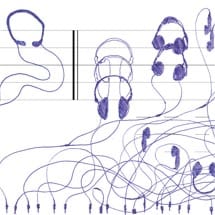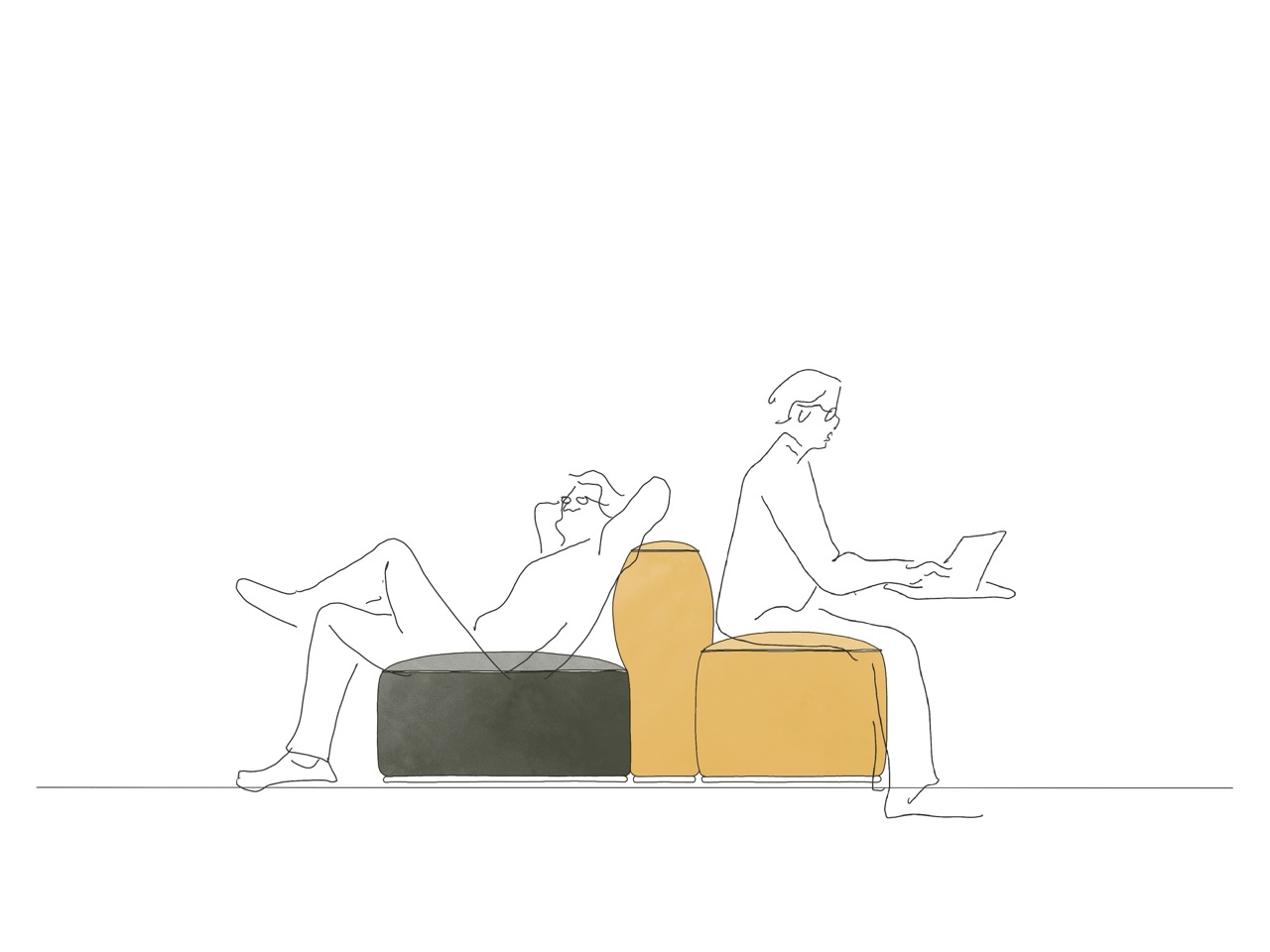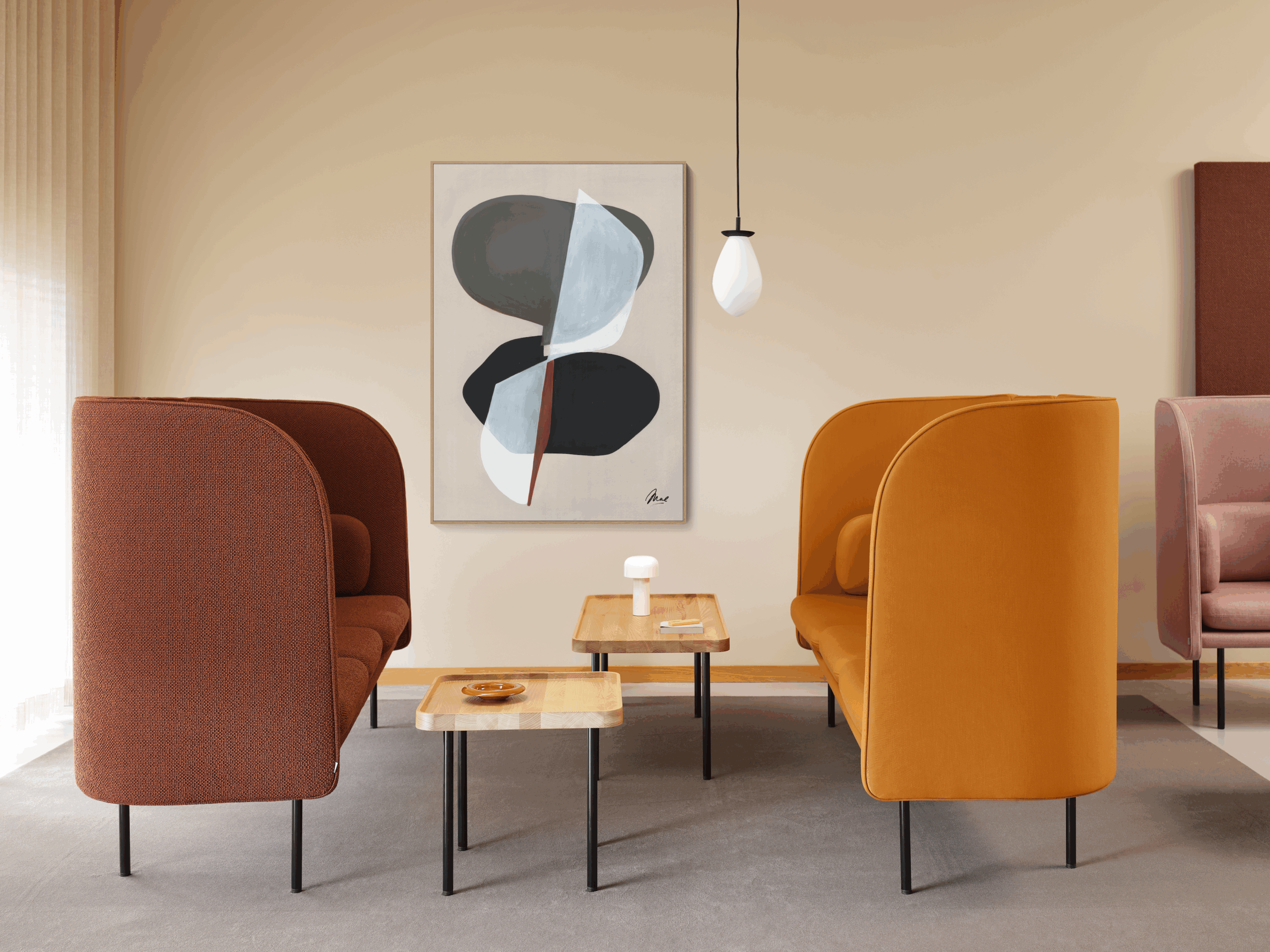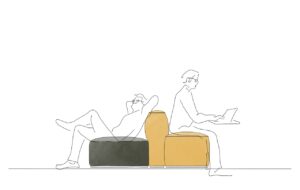
 Words by Indigo Clarke
Words by Indigo Clarke
Music in the office can promote productivity and wellbeing, says Indigo Clarke, but getting it right can be a tricky business
With the abundance of new music technology available to us, the office is now more than ever a music-friendly environment, with tunes pulsing through computer speakers, headphones, mp3 players and mobile phones. And, as it turns out, having a soundtrack to support your work life can be surprisingly positive. Numerous studies show that an individual’s choice of music in the workplace significantly reduces their stress and anxiety, leading to feelings of wellbeing conducive to greater efficiency and creativity.
A theory known as the Mozart Effect surfaced during the last decade and resulted in the popular notion that listening to Mozart can promote intelligence. This thinking followed a study showing that individuals performed problem-solving tasks more efficiently when listening to Mozart than without music. This study was challenged by US researchers in 2001, who determined that increased brain activity and mood arousal was a result of listening to music in general – not specifically Mozart.
Examinations of independently selected music listening have found it regulates moods, suggesting potential for music to improve public health – an important factor for employers with the increasing rates of stress, job dissatisfaction, anxiety and depression reported in the workplace.
“Music makes people feel good,” explains Dr Nicola Dibben, Senior Lecturer with the Department of Music at University of Sheffield, currently conducting research into the effects of music on office environments. “It is one way to raise physiological levels, creating circadian rhythms or patterns of alertness and awakeness. The study we undertook with one large computer-based company indicated that music also offers a sense of privacy and, to some degree, control over an individual’s environment.”
Music also serves the crucial function of drowning out distracting sounds common in open-plan offices. Democratic environments they may be, but open-plan designs offer greater information sharing and dynamism at the expense
of quietude. It makes sense that people should look to music as a focusing tool in often raucous, and possibly unproductive, surroundings. “Listening to music functions as a sound-blocking device,” says Dibben, “focusing attention to one sound rather than that of general office racket, as well as giving people a sense of privacy.”
But the privacy of personal stereos can also be counter-productive. Workers permanently plugged into headphones isolate themselves from colleagues. They are no longer part of conversations, become less approachable and often can’t hear the phone. And a number of companies are looking to ban MP3 players in the workplace, complaining that younger employees are setting themselves apart, spending their time attached to the latest iPods.
Dibben points out the fact that “There is a strong historical background of music in various work environments as a productive force”. Historically, workers undertaking physically laborious work set a pace and rhythm by singing, creating a communal sharing of music rather than the contemporary isolation of personal stereos. “People had a voice,” explains Anneli Beronius Haake, Dr Dibben’s research assistant. “With singing, everybody had a sense of personal power – they were making an individual statement, whether anybody heard it or not.” With industrialisation came the notorious factories of Henry Ford and Frederick W Taylor, who abolished singing in the workplace, touting the famed line “Work is work and play is play”. Machines set the pace of work, the individual had less control and, says Beronius Haake, “Music began to be used sparingly over loudspeakers as a reward by the factory manager or owner.”
From the 1920s, sporadic studies examining the correlation between music and efficiency were being undertaken, inspiring radio programmes and even companies such as Muzak to compose or air music with the sole purpose of positively influencing a commercial environment. The BBC introduced “Music While You Work” in the 1940s to boost post-war workplace morale, later establishing “Workers Playtime”, a programme broadcasting live music. These programmes were often aired during lunchtime – emphasising the perceived disparity between music and work.
“Attitude to music in the workplace has been slowly changing,” explains Beronius Haake. “Many people are using music to increase their sense of wellbeing and remain focused and less bored. People are saying that listening to music helps them to concentrate better, and that feeling in a more positive mood definitely leads to better work performance. In short, greater productivity is a result of a positive state of mind.”
Teresa Lesiuk, Professor of Music at the University of Windsor, Canada, in her article “The Effect of Music Listening on Work Performance” published last year through the Society for Education, Music and Psychology Research,
found that “Creativity is adversely affected by stress and certain moods. People who experience a positive mood as a result of music demonstrated better creative problem solving than people with a neutral or depressed mood.” Lesiuk also notes that music can serve as an anxiety preventative or anxiety reducing measure as long as people can choose their own music – a finding Beronius Haake corroborates. “The most important thing for people when listening to music at work is to be able to choose it themselves. There is no such thing as the best music for the office as it is completely individual and therefore subjective.” Which leaves the problem of what music to play? The kind of bland, “inoffensive” Muzak played in shops and restaurants would cause more anxiety rather than less in a large percentage of employees. So maybe plugging into those headphones is the only answer. Just make sure you don’t block out the office entirely, tempting as that sounds.






















